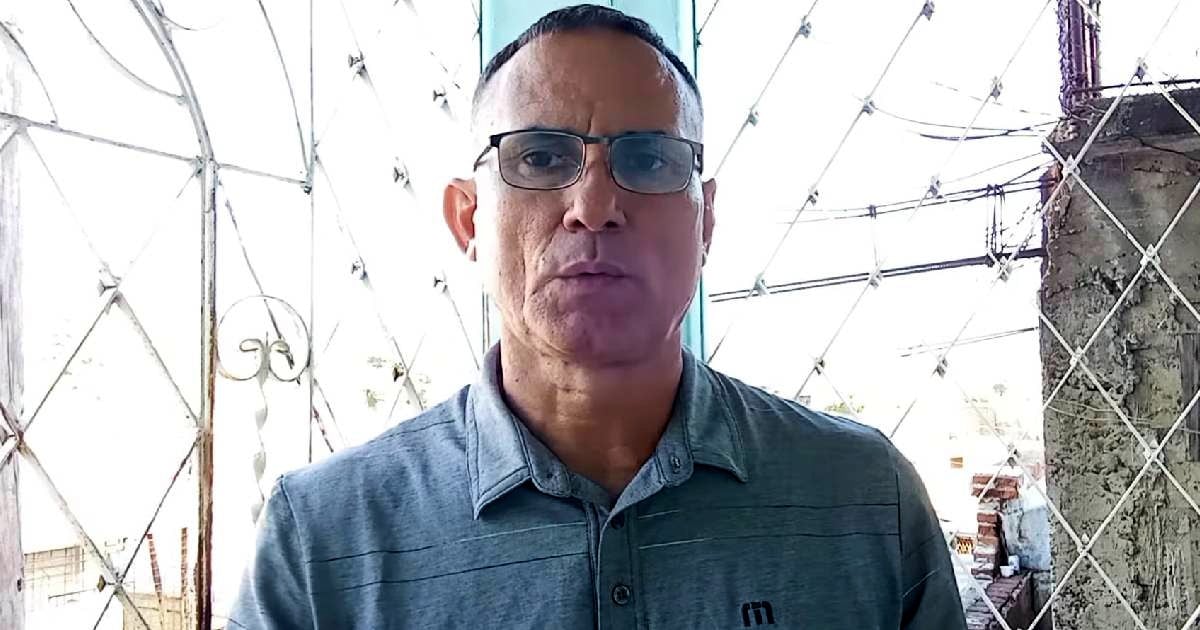The prominent Cuban dissident, José Daniel Ferrer, who was recently released from prison by the regime after enduring over three years behind bars, has disclosed that he received a police summons at his home in Santiago de Cuba. As the head of the Patriotic Union of Cuba (UNPACU), Ferrer voiced his refusal to comply with the summons in a message shared on social media, denouncing the ongoing harassment by the authorities.
"I'm not going anywhere," Ferrer asserted, emphasizing his refusal to participate in what he describes as the repressive tactics of the Cuban regime. "If their intention is to threaten me with a return to prison, they are wasting their time. For the freedom and well-being of my people, I am willing to sacrifice everything, even my life. Prison doesn't scare me," he declared.
The summons, issued by the Second Station of the Revolutionary National Police in Santiago de Cuba, orders Ferrer to appear on January 28, 2025, at the police facility located in Vista Alegre. Ferrer was released on January 16, 2025, after spending three and a half years in detention. His release was part of an agreement involving the Cuban regime, the Vatican, and the United States, which aimed for the gradual release of 553 political prisoners.
Upon his release, Ferrer conveyed a message of resilience and hope to Cubans, urging them to overcome their fears as "the oppressor is increasingly frightened." He encouraged: "Do not fear fighting for a free, just, and prosperous Cuba. Do not be afraid to work towards a better future for all Cubans, so we don't have to leave in search of freedom and better living conditions elsewhere."
Following his release, Ferrer criticized the agreement that facilitated his freedom, expressing that he harbors no gratitude towards any "undignified process or negotiation that ends up benefiting the dictatorship." He voiced concerns that while some political prisoners may be freed, the regime could imprison more people and use these releases as leverage in international negotiations.
Upon returning to his home in Santiago de Cuba, Ferrer noticed significant changes in the country, such as empty streets due to mass emigration as Cuban families constantly struggle to find food. Despite being freed, he acknowledges the possibility of being detained again at any moment, yet remains steadfast in his dedication to fighting for a free and democratic Cuba.
Ferrer’s release has been praised by political figures such as U.S. Congresswoman María Elvira Salazar and Senator Rick Scott, who lauded his courage against the Cuban regime and emphasized that the struggle for Cuba’s complete freedom continues.
Understanding José Daniel Ferrer's Defiance
Why did José Daniel Ferrer reject the police summons?
José Daniel Ferrer refused the police summons as a protest against what he sees as the Cuban regime's oppressive tactics. He believes that complying would only serve to perpetuate their harassment and intimidation.
What changes did Ferrer notice in Cuba after his release?
Upon his return, Ferrer observed significant changes, such as deserted streets due to widespread emigration, driven by the constant struggle of Cuban families to find basic necessities like food.
What is Ferrer's stance on the agreement that led to his release?
Ferrer is critical of the agreement, expressing no gratitude towards it. He is concerned that it could be used by the regime to imprison others and serve as a bargaining tool in international negotiations.
